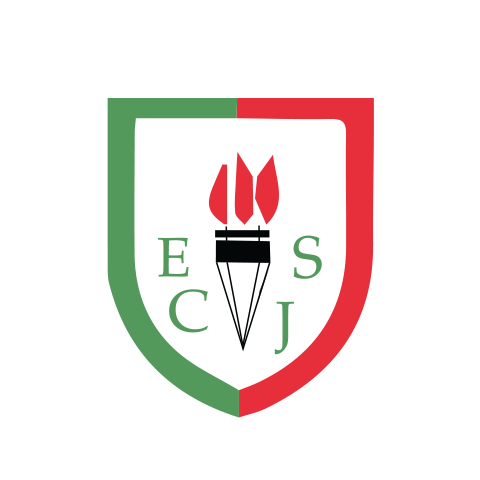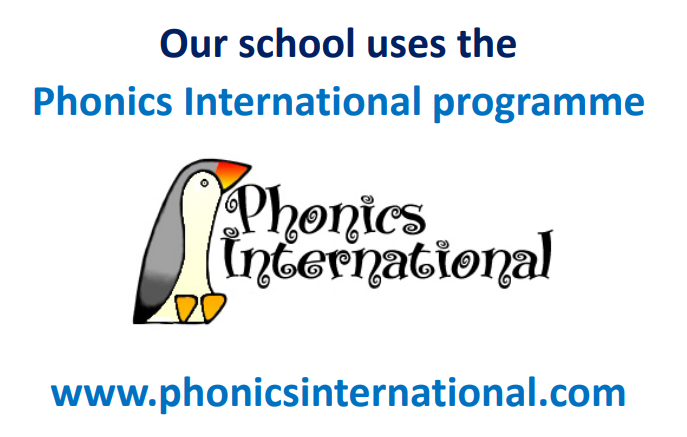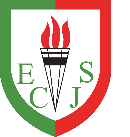
Eskdale Junior School
Think like a...Reader and Writer!
Rationale:
Our curriculum is underpinned by our five core values, supporting pupil's academic and personal development, making learning and knowledge gain meaningful, developing a pupil’s character and preparing them to be successful Eskdalers, now and in the future. The Eskdale Reading and Writing Journey (think like a reader…..think like a writer) begins with immersion in good quality texts, moves though to pupils planning, writing and editing their own writing and ends with them evaluating and celebrating their written achievements. By introducing pupils to the idea of our ‘Think like a….’ approach to their learning, it enables them to become a little more ‘expert’ in both written and oral language by:
*communicating clearly, learning through discussion, elaborating on, and explaining their understanding and ideas.
*being competent speakers and listeners, able to formally present their knowledge, demonstrate their understanding and debate key issues, showing an increasing awareness that speaking and listening are the building blocks to successful writing.
*developing a firm phonic knowledge to decode unfamiliar words (segment and blend) with automaticity, providing a firm foundation for increasing accuracy, fluency, reading speed and stamina.
*reading rich, varied and diverse texts using appropriate expression, intonation and understanding (considering audience and purpose), nurturing a life-long love and real appreciation for the wealth of literature on offer, past and present.
*reading widely and often, both fiction and non-fiction for enjoyment and deepening understanding, able to apply English skills and knowledge throughout all areas of our curriculum.
*writing competently and cohesively, in and for, a range of genres, contexts, purposes and audiences, adapting their style and use of language appropriately.
*using their increasing knowledge of punctuation, grammar and spelling rules (SPAG) alongside a deepening understanding of phonics and an expanding, rich and ambitious vocabulary (both 2 and 3 tier) to develop the skills of reading, writing and spoken language.
At Eskdale we teach Reading and Writing using Curriculum by Unity Schools Partnership (CUSP).CUSP is an evidence informed, carefully sequenced English curriculum that complies with both the National Curriculum 2014 and the more recent Reading Framework (July 2023), mapping substantive knowledge (for reading, texts and their contexts, for writing the rules of language, terminology and transcription) and disciplinary knowledge (for reading, how to read, interpret and analyse text and for writing how to compose text types), key concepts and core learning in Reading and Writing across our key stage 2 journey, ensuring that learning is taught and revisited over time so that pupils commit their understanding to their long-term memory.
‘Think like a reader, behave like a writer…’ Our reading curriculum is deliberately designed to be ambitious and aspirational, ensuring that every child leaves our school as a competent, confident reader. Drawing on the latest research around explicit vocabulary instruction, reading fluency and key comprehension strategies, this curriculum is a synthesis of what we know works in helping children make outstanding progress in reading and a distillation into consistent, well-structured practice. Our pupils receive a daily diet of excellent reading teaching, supplemented by regular opportunities to engage with shared reading experiences, promoting the joy of reading with the whole school community. The clear structure and principles ensure that teaching is progressive, challenging and engaging and the rich, diverse literature spine acts as both a mirror so that every child can see themselves in the core texts and an opportunity to engage pupils with experiences beyond their own field of reference.
As a school, we use the DfE validated Phonics International programme by Debbie Hepplewhite, to teach phonics. This rigorous and systematic approach develops children’s accuracy, fluency and confidence, building upon the No Nonsense Phonics programme (also by Debbie Hepplewhite) that our feeder infant school advocates. As part of this programme, our children read decodable reading texts in school as well as a familiar, decodable reading book to share at home to further develop fluency and confidence. These books are closely matched to the phonemes/graphemes (code) that children are being taught, provides the opportunity to apply their knowledge in practice to develop a sense of reading independence and is systematically reviewed. All pupils also choose a Reading for Pleasure book to share in school with an adult or Reading Buddy, or at home with parents/carers.
Think like a writer, behave like a reader…’ Eskdale’s writing curriculum draws on taught content from the in-depth study of core texts from the literature spine. Expert subject knowledge is carefully woven into each writing module which gives teachers the opportunity to teach, rehearse and revisit key concepts, knowledge and skills before applying this learning to meaningful extended outcomes. The careful architecture of this curriculum ensures that pupils build on prior learning and maximise purposeful cross- curricular connections to become writers for life. Punctuation and grammar is taught directly within the context of the CUSP curriculum and pupils receive separate spelling lessons linked to and building upon their phonic skills and knowledge.
The transcription element of writing is addressed throughout key stage 2 allowing pupils to build upon their letter formation skills to develop speed, fluency and increasingly high standards of presentation using accurately joined neat handwriting, when they are ready to do so
Interwoven through all of this is oracy. At Eskdale, we provide our children with a real reason for purposeful talk both during teaching sessions and within Book Talk and Library Time, where children talk, orally rehearse their ideas, discuss, explore, predict, explain and come to their own conclusions. Across the curriculum, adults model this, demonstrating the use of enriched vocabulary, enabling our pupils to develop and practice these skills with others.
Using the process model of Connect/APK, Explain, Example, Attempt, Apply/Challenge, English is delivered through our method of teaching (pedagogy), which incorporates meta-cognitive strategies to enable all pupils to retain the learning of knowledge. This is typically applied by:
· Activating Prior Knowledge
· Small step teaching delivery
· Independent practice
· Feedback

 A Culture of Reading
A Culture of Reading
At Eskdale Junior School, we want our children to develop a love of and a pleasure for, reading. We believe that reading should be a fundamental part of childhood and a skill which should be developed to support lifelong learning.
Our aim is to develop and embed a strong, sustainable reading culture within the school community. Confident and competent readers will foster a love of reading through a rich and varied experience of texts, in which they are empowered to exercise freedoms of choice and independence. We encourage them to view reading as a social activity through which they can relate to and empathise with perspectives other than their own. We want all children and adults at Eskdale to feel they are part of our community of readers. Parents are encouraged to read with and to their children and to discuss and enjoy the texts they share. A full range of questions to prompt discussions at home can be found in the pupil organiser, for both fiction and non-fiction texts.
Implementation of Reading for Pleasure Practice
Reading Environments
Reading Aloud
Independent Reading
Book Talk and Library Time
The Library Squad
Reading Environments
Pupils at Eskdale have access to a large variety of books and texts in different spaces, including the library, communal corridors and classroom reading corners.
Teachers display which children’s book they are currently reading on their classroom door to encourage book chat between teachers and pupils.
Each class also showcases stories recommended by pupils, the Eskdale Library Squad and staff in each class.
We have a collection of books for children to share and read outside in the Library courtyard at playtimes.
Reading Aloud
Pupils benefit from having class stories read aloud to them every day.
Pupils regularly have opportunities to read aloud in lessons during fluency sessions, Book Talk reading lessons and sharing non-fiction text reading in the wider curriculum. All pupils also have a Reading Buddy with whom they share both their chosen texts and their thoughts and feelings about what they are reading.
The University of Nottingham states that there are many benefits to the ‘end of the day read’ including:
- Encountering new words and enriching vocabulary – you experience words that would almost never come up in conversation.
- Children can enjoy and understand texts beyond their own reading ability.
- Enhances imagination and observation skills
- Improves critical and creative thinking skills
- Expands a student’s general knowledge and understanding of the world
- Empathy is developed as they make connections with the experiences of the characters in the text and with each other
- Fluent, expressive reading is modelled
- Conditions the brain to associate reading with pleasure*
- Plants a desire to read
Independent Reading
Pupils have time in class to read independently on a daily basis. Regular independent reading is a critical component of building reading stamina, improving comprehension, vocabulary and fluency as well as helping to develop positive reading habits. Pupils are shown how to choose ‘just-right’ reading level texts using our P.I.C.K. system:
P. (purpose) I. (interest) C. (comprehend) K. (know the words).
All pupils have the opportunity to take their ‘Reading for Pleasure’ book home to share, enjoy and discuss.
Book Talk – (think like a reader)
Book Talk is key to developing an engaging reading culture for everyone that promotes oracy skills, reading fluency and confidence. Children collaborate in small groups using sentence stems and appropriate, often ambitious vocabulary to develop a Book Talk response. All of our CUSP texts are high quality, age-appropriate and carefully selected to suit our children. This ensures that all children are challenged and have the opportunity to experience the diverse and magical world that reading has to offer. Children are exposed to a wide range of fiction, non-fiction and poetry texts which they use to develop their reading, retrieval, sequencing and summarising, inference and prediction skills. They will also discuss the vocabulary that they encounter to help continue to build their knowledge of and skills with, language.
Library Time – (planned for and timetabled).
- Ask questions. What are you reading at the moment? What do you think about it? What are they curious about? Can you make a link with anything else you’ve read? Are there words, phrases or descriptions you find interesting that you would like to add to your journal to imitate in your writing?
- Personal responses - (behave like a writer).The focus is on children’s emotional responses to the themes and ideas within the texts they read (likes and dislikes). What do you think was the author’s intended impact on you, the reader? Has it achieved the intended impact, do you think?
- Authorial choices – (behave like a writer).Who is the intended audience? What is the purpose of the text? (The reason for writing). What does the author want to make the reader think, feel or understand? How has the author chosen to organise the text? What language choices has the author made? Has the author chosen to write from their own or a character’s perspective? Is there anything you would like to add to your journal?
The Eskale Library Squad
The Eskadle Library Squad play a pivotal role in promoting a love of reading across school. Each July, new applications go out to our Year 6 pupils who can then write a letter of application to join the squad. After an interview, the Library Squad is chosen for the academic year. Their responsibilities include:
- Promoting a love of reading through modelling, conducting various reading activities in school and engaging parents.
- Taking charge of the Library - checking out, collecting returned library books and opening the Library for classes to use during lunchtimes (timetabled weekly).
- Fund raising (e.g. Bake and Read, Pre-loved book sales etc.) to buy pupil choice books.
- Leading reading assemblies along with Mr Scruton.
- Writing book reviews and peer -to-peer recommendations.
- Reading and reviewing books for pupils to enjoy.
- General upkeep of the library and corridors.
- Being role models for all aspects of reading.
- Discussing reading with visitors to school (Curriculum Fairs etc.).
Click this link to hear the sounds
How we adapt the English Curriculum for SEND Pupils
As part of our quality first approach to teaching, we use a range of strategies to support SEND pupils to access the English curriculum. The document below details examples of the adaptations that are made to support pupils in class.
Year 6: Reading Standard Attainment Tests (SATs):
- Tests children's understanding and application of the skills taught in the primary curriculum
- Carried out in school, in May
- Performed on paper to a time limit
- Reported to parents and carers in the child's end of year 6 report
- School performance data published on a national level
- Results passed on to secondary schools
Year 6: Writing Teacher Assessment:
- Assesses children's application of the skills taught in the primary curriculum
- Carried out in school, in June
- Outcomes moderated by the local authority every 4 years
- Reported to parents and carers in the child's end of year 6 report
- School performance data published on a national level
- Results passed on to secondary schools